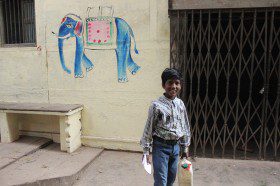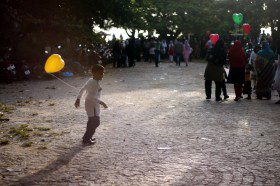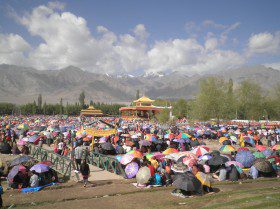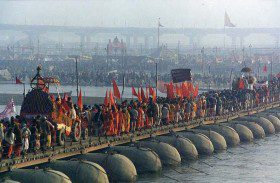Harvard will be offering many South Asian courses in the Fall 2014 semester. Below is a sample of courses from across many departments that contain content about South Asia, including some that are new courses.
For a fill list of South Asia classes, click here.
Anthropology 1658. Law, Culture, and Islam – (New Course)
Asad A. Ahmed
For Undergraduates and Graduates
Half course (fall term). M., W., at 11, and weekly section to be arranged
From Afghanistan, through the Middle-East and to the United States, the Shari’a has become a site of intense conflict and controversy. Regarded as backward and barbaric by some and a source of ethical and religious life by others it marks deep divides and seemingly incommensurable world views. This course examines the Shari’a, primarily understood as law through an anthropological lens in recent and contemporary life. It will attend to the conjunctures, imaginaries and practices between ‘ law’, culture and morality initially in the Muslim world before shifting to debates on incorporating Sharia law in the West.
 Societies of the World 47. Contemporary South Asia: Entrepreneurial Solutions to Intractable Social & Economic Problems
Societies of the World 47. Contemporary South Asia: Entrepreneurial Solutions to Intractable Social & Economic Problems
Tarun Khanna (Harvard Business School, SAI)
For Undergraduate and Graduates.
Half course (fall term). M., W., 3:30-5, and a weekly section to be arranged.
South Asia is home to two of the world’s seven billion people. The primary objective of the course is to engage students with the modern day challenges affecting South Asia, and to examine a range of entrepreneurial attempts to solve these problems. The course focuses on several categories of social and economic problems faced by the countries of South Asia, with specific focus on the realms of Education, Health, Financial Inclusion, and Urbanization. The goal is to understand ways in which entrepreneurial action can effectively tackle major socioeconomic problems in South Asia, by combining knowledge of historical causes, qualitative and quantitative evidence, and context-specific knowledge of the commonalities and differences across South Asian countries. No prior knowledge of South Asia is required.
South Asian Studies 123. Bollywood and Beyond: Commercial Cinema, Language and Culture in South Asia
Richard S. Delacy (South Asian Studies)
For Undergraduates and Graduates
Half course (fall term). W., 1-4 pm
This course examines concepts of personhood, community and culture in South Asia as expressed in contemporary film and literature. Works in Hindi-Urdu and in translation will be examined with emphasis on language as an index of cultural difference and of broad social shifts, notably the transformation of audiences from citizens to culture-consumers. Knowledge of Hindi-Urdu is not required. However, there will be a section for students with intermediate proficiency utilizing language materials.
Note: Students who enroll in the language section of this course may count it towards a citation in Urdu-Hindi.

Freshman Seminar 33j. Temples and Museums: Politics of Display and the Arts of South and Southeast Asia – (New Course)
Catalog Number: 50081

History of Art and Architecture 18s.
Art of Indian Esoteric Buddhism
Jinah Kim (History of Art and Architecture)
Primarily for graduates
Half Course (Fall term), W 3-5pm
This seminar explores the art of Indian Esoteric Buddhism from various interpretive vantage points. After a brief survey of the earliest phase of its development, the discussion will focus on unpacking the recent scholarly discourses on Esoteric or Tantric Buddhism in relation to the artistic productions in medieval South Asia (ca. 800-1200CE). The two main topics for the semester will be the Saiva-Buddhist interactions as manifested in iconographic (and artistic) articulations, and the validity of semiotic and historical interpretations of iconography and ritual of Indian Esoteric Buddhism.
Islamic Civilizations 178 (formerly *Religion 1820). Muslim Societies in South Asia: Religion, Culture, and Identity
Ali S. Asani
For Undergraduates and Graduates
Half course (fall term). Th., 1-3 pm
South Asia is home to the largest concentration of Muslims in the world. This course surveys the development of Muslim communities in the region focusing on an exploration of their identities in diverse contexts. Issues and themes will be considered within religious and socio-political contexts, as well as the broader framework of South Asian cultures as expressed in language, literature, and the arts. The course also examines various ways in which the terms “Islamic” and “Muslim” are understood in pre-modern and modern discourses as well as the lived experiences of being Muslim in contemporary India, Pakistan, and Bangladesh.
Note: This course, when taken for a letter grade, meets the General Education requirement for either Culture and Belief or Societies of the World, but not both. This course fulfills the requirement that one of the eight General Education courses also engage substantially with Study of the Past. Offered jointly with Divinity School as 3625.
South Asian Studies 199: Modern India Through Narrative Forms (New Course)
Shankar Ramaswami (South Asian Studies)
Fall 2014, Tuesdays, 1-4 pm
For undergraduates and graduates
This course will explore histories, politics, social relations, and subjectivities in modern India through close readings of novels, short stories, and autobiographies. The course will consider the depictions, understandings, and illuminations in these narrative forms of deprivation, conflicts, and intimate relations in villages; nationalism, civil disobedience, and Gandhi; Hindu-Muslim relations and experiences of Partition; and the workings of caste and gender relations in modernIndia. Readingswill include works (in English translation) by Rabindranath Tagore, Munshi Premchand, Rahi Masoom Reza, Saadat Hasan Manto, and U. R. Ananthamurthy.
 Music 190gew. Music in Islamic Contexts – (New Course)
Music 190gew. Music in Islamic Contexts – (New Course)
Richard K. Wolf (Music)
For Undergraduates and Graduates
Half course (fall term). Th., 1-3 pm
This course focuses on the arts of sound practiced by Muslims in India, Pakistan, and Iran, and on procedures of recitation that grow from pre-Islamic roots among Arabic-speaking peoples. The purposes are two-fold: one is to understand from a musically informed perspective a set of interrlated musical practices that cut across South and West Asia. The second is to understand how different ideologies, philosophies and texts – associated with Islam locally, nationally, and internationally – shape local understandings and constructions of sound.
Note: This course, when taken for a letter grade, meets the General Education requirement for Culture and Belief or Aesthetic and Interpretive Understanding, but not both.
 Religion 1602. Lived Religion in South Asia – (New Course)
Religion 1602. Lived Religion in South Asia – (New Course)
Anne E. Monius (Divinity School)
For Undergraduates and Graduates
Half course (fall term). M., W., at 10 and an hour to be arranged.
This course explores the lives, practices, and experiences of contemporary South Asians from Hindu, Muslim, Jain, and Sikh perspectives. Concepts central to South Asian worldviews will be carefully considered in the context of both rural and urban day-to-day activities, rituals, and family life. Readings are drawn from a wide range of ethnographic literatures, and films documenting a diverse range of religious, cultural, and social settings from across South Asia will frequently be shown.
Note: Offered jointly with the Divinity School as 3461.
Religion 1709. Introduction to Buddhist Scriptural Anthologies and their Critical Interpretations
 Charles Hallisey (Divinity School)
Charles Hallisey (Divinity School)
For Undergraduates and Graduates
Half course (fall term). Tu., Th., 8:30-10
An introduction to basic issues in reading Buddhist Scriptural Anthologies, both historical and hermeneutic. Special emphasis will be given to issues of intertextuality that the formation of scriptural anthologies generates. Examples of Buddhist scriptural anthologies will be drawn from across the Buddhist world.
Note: Offered jointly with the Divinity School as 3800.
Tibetan 151. Era of the 5th Dalai Lama (1617-82): Ascendancy & Intellectual Climate of Dga’ ldan pho brang Court – (New Course)
Leonard W. J. van der Kuijp
 For Undergraduates and Graduates
For Undergraduates and Graduates
Half course (fall term). Th., 1-4 pm
This course will examine the politics of the Dga’ ldan pho brang court and the arts and sciences cultivated by the Fifth Dalai Lama and his governors (sde srid), with special attention given to Sde srid Sangs rgyas rgya mtsho (1653-1705). This will be a seminar-cum-reading course with readings taken from the Fifth Dalai Lama’s autobiography, his and Sangs rgyas rgya mtsho’s treatises on the astral sciences, and several “afterwords” (par byang) to the xylograph-publications that they sponsored.
Prerequisites: Reading knowledge of Tibetan and an insatiable intellectual curiosity.
Sanskrit 217. Introduction to Vedic Studies: language and texts – (New Course)
Michael Witzel
Primarily for Graduates
Half course (fall term). W., 4-6 pm
Presents a history of Vedic texts and religion. Reading of pertinent texts from the period, 1200-500 BCE..

